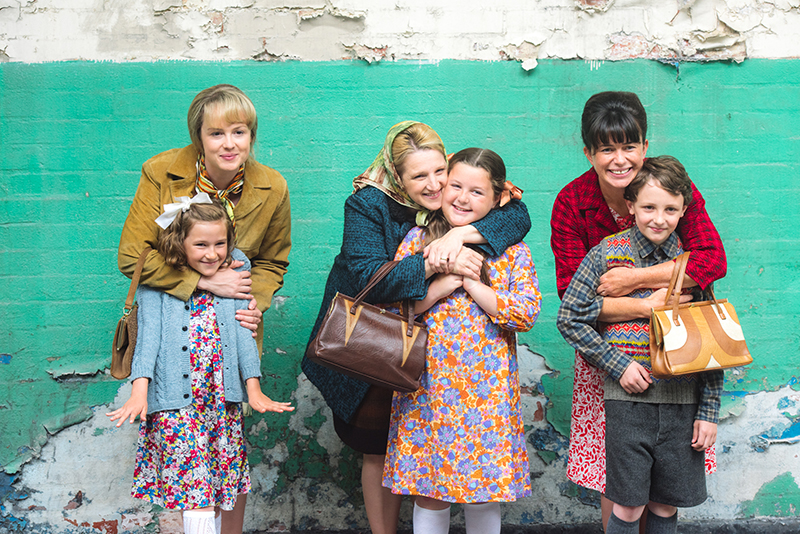Over a period of seven months, together with BBC producer Jenna Robbins, I travelled to Aberfan to interview survivors, parents who’d lost children, rescuers and current residents. This process was, by turns, harrowing and uplifting. However much survivors or rescuers told me they were fine, that enough time had passed for them to talk about their experiences, still, there was always a moment when the awful horror of that day would break upon them. Always, I felt a sharp guilt. It is one thing to be able to recall an event in general, and quite another to have someone ask you to walk them, step by step, moment by moment, through your memories, describing them in detail as you go.

There were moments when the archival research also caught me unawares. Coming across a handwritten list of the dead and its accumulation of single digit ages filling a column. Or reading a local newspaper report of an inquest into the deaths of thirty of the children, and of the moment when, after one name was read out and the cause of death given as asphyxia and multiple injuries, a father stood and responded with ‘No, sir, buried alive by the National Coal Board. That is what I want to see on record.
The difficulties and darkness of much of my research was often countered by the best of the human condition. Accounts of extraordinary acts of effort and kindness at the moment of the disaster and in its aftermath; spending a morning in the thriving maelstrom of the local mother and toddler’s group, or among the infectious curiosity and energy of pupils in the impressive Ynysowen junior school. Nearly every interview, too, however upsetting, would also give at some point to humour, optimism and generosity of spirit, and nowhere more so than in my visits to the Young Wives Club.
Originally formed by mothers and wives from the village in the wake of the disaster as a place to ‘laugh, cry, speak and be heard’, this organisation has grown over the last fifty years into a general social club of invited speakers, theatre trips and weekly gatherings in a room above a chapel. Many of its members lost children in the disaster and perhaps this was why I’d been particularly daunted by the prospect of visiting the club; of sitting before bereaved mothers and explaining that I wanted to try and tell their story. What I hadn’t expected was to spend so much of my evening at the club (which, with an average age in the 70s had just voted to remove the ‘young’ from their title) laughing. But I did. The women I spoke to were open about their losses, and about the difficulties of coping with such a pubic grief, but they were also one of the most life-affirming group of people I’ve ever met; a living manifestation of the kind of place Aberfan had been in 1966. Many of the survivors I’d interviewed had spoken about the village’s vibrancy at that time. With full employment in the mine and local factories its streets were thick with shops and tradesmen, boasting two butchers, two fishmongers and even two cinemas. The villages’ cultural life was similarly active, with well supported drama societies, bands and choirs and the swinging dance halls of Merthyr just down the road.

Walking down Aberfan’s high street today I’d often found it difficult to imagine this version of the village. Over the last fifty years, as well as the disaster, Aberfan has also had to take all the other body blows inflicted upon the south wales valleys by the late twentieth century – the miners strike and closure of the mines, Thatcherism, unemployment, poverty, alienation, Osborne’s austerity. The busy high street of traders is gone, and employment is largely elsewhere now, at the EE call centre in Merthyr, or further afield in Cardiff. In spending time with the Wives Club, though, I felt I’d visited that other village, the Aberfan of 1966 full of possibility, energetic intelligence and vibrant life, alive not just in their memories but also in them, their actions, attitudes and humour.
__________________________________

Aberfan: The Green Hollow is nominated for Best Single Documentary - Domestic at The Grierson Awards 2017.
Pip Broughton for BBC Studios in Wales & Vox Pictures; first shown: BBC Four
